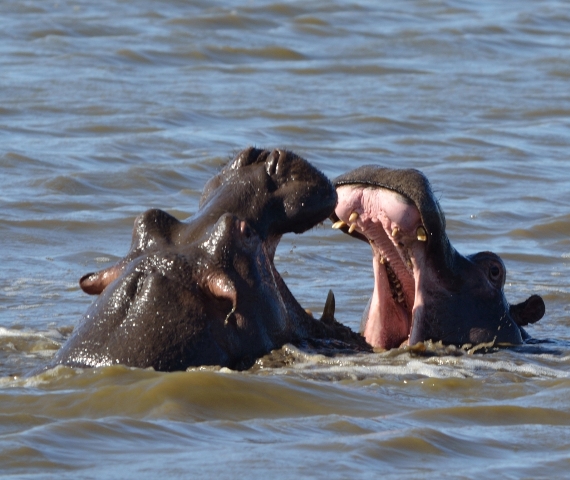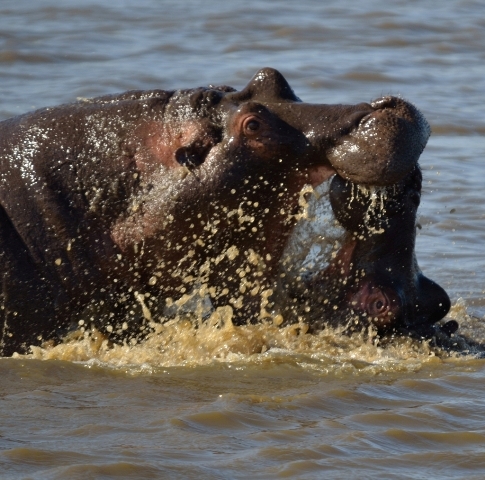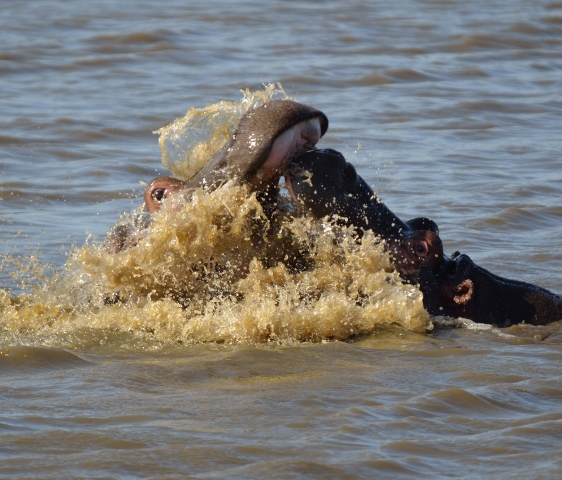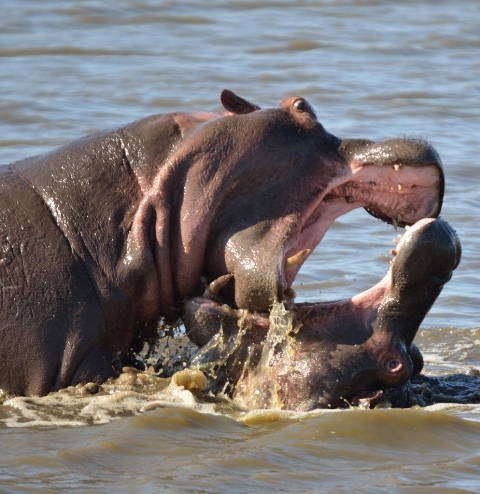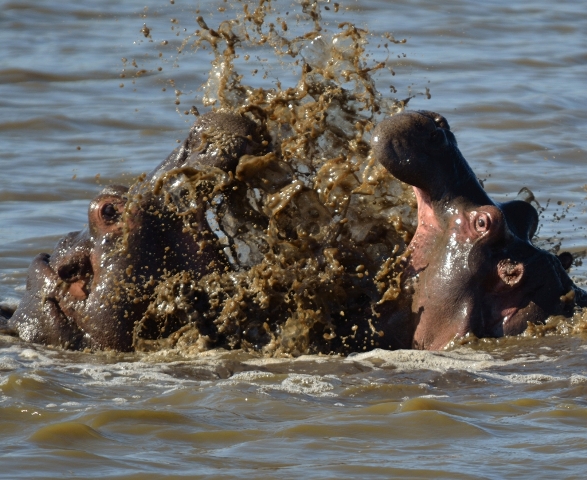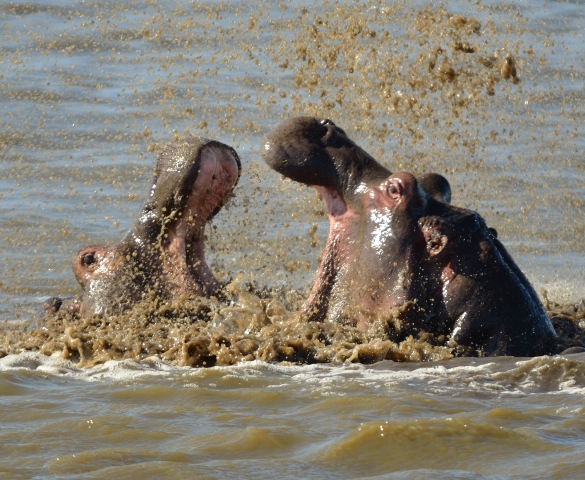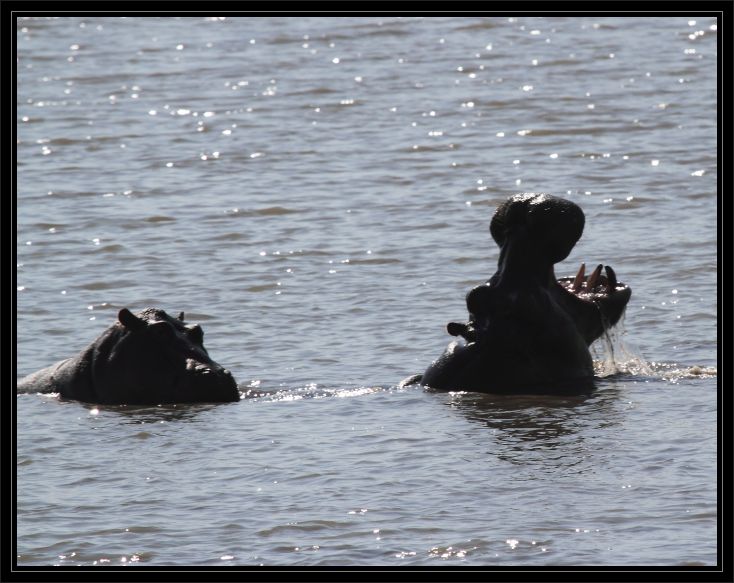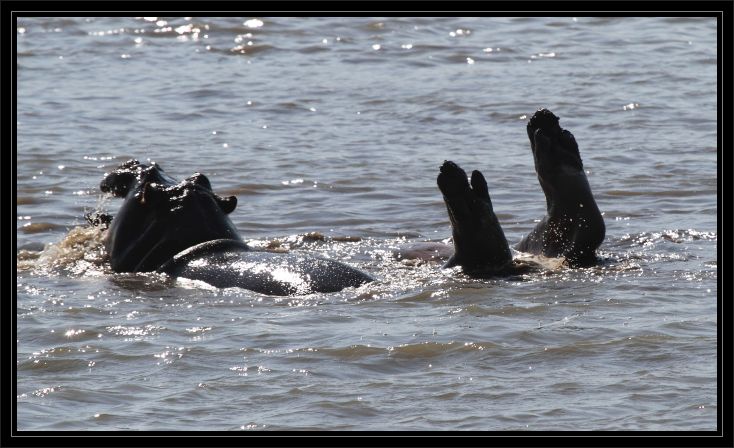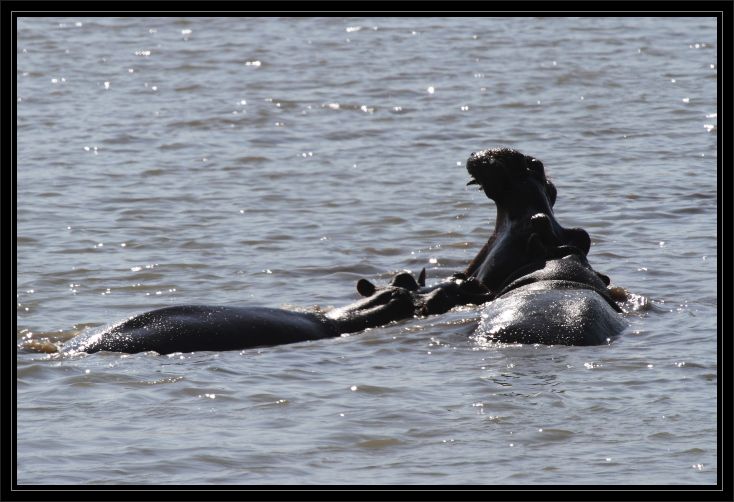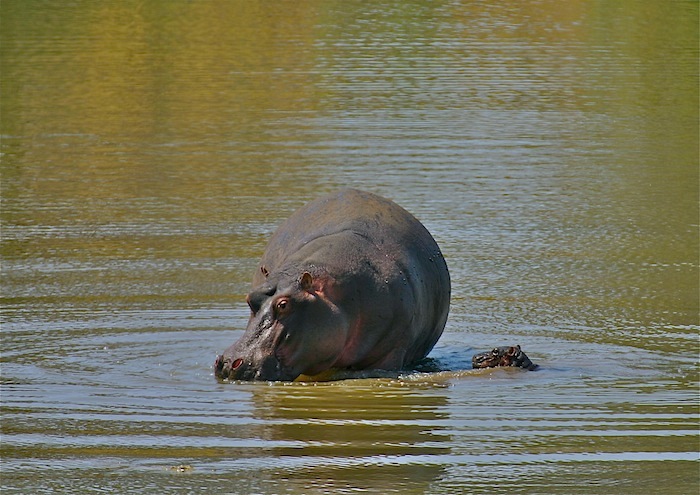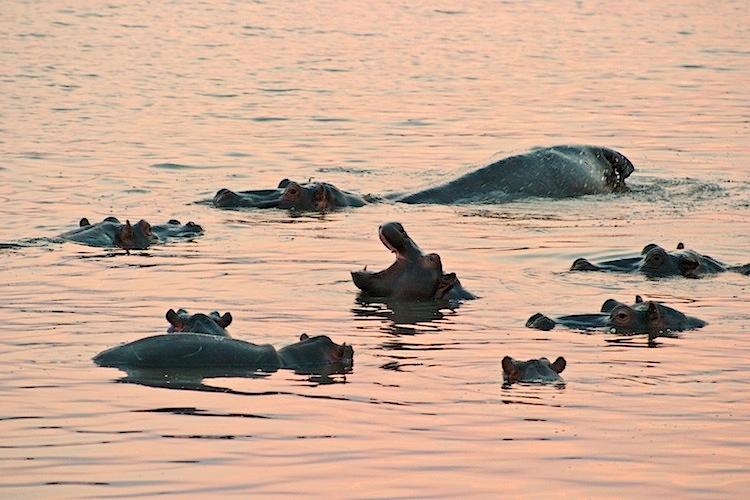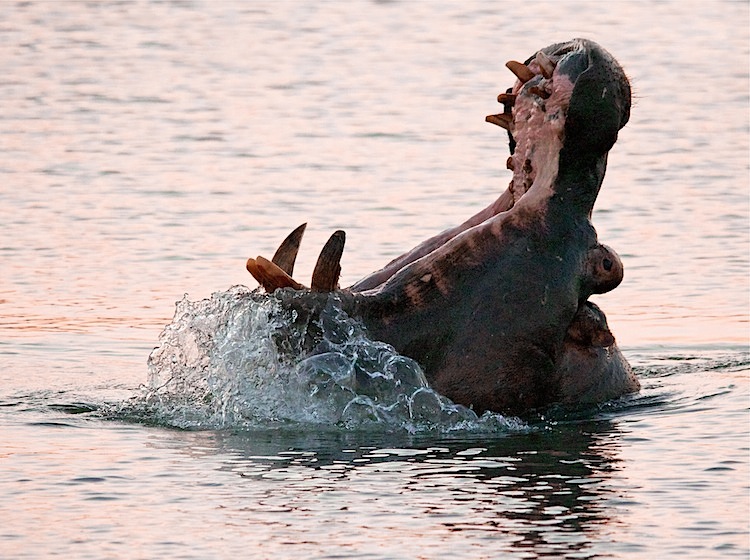Type: Mammal
Diet: Herbivore (mostly)
Average life span in the wild: 40-50 years
Size: Height at shoulder, 1.5m, Length, 3-5m
Weight Male: 1,500 - 1,800 Kgs, Female 1,300 - 1,500 Kgs
Distribution: Sub-Saharan Africa
Heaviest land animal after the Elephant and Rhinoceros.
Name translates from ancient Greek for "river horse"
Closest living relative: Cetaceans (whales)
One of two existing species, the other being the Pygmy Hippopotamus which is found in the forests and swamps of West Africa.
Hippos spend most of the day in water to protect their sensitive skin from sunburn and emerge at night to feed. They can travel as much as 10Kms and consume around 65Kgs of grass each night. They have been known to eat carrion and cannibalism has been reported.
Hippos are unable to swim as they are negatively buoyant; they get around in water by walking or running along river or lake beds.
Gestation period is 8 months and produces a calf weighing about 45Kgs.
One of the most aggressive animals in Africa, it is thought to cause more human deaths than any other species.
Males are fiercely territorial and clashes between males can be extremely violent but usually end as soon as it is decided who is stronger. To mark their territory, males move their tails rapidly back and forth when defecating to distribute their dung over a wide area. Territorial males are also reported to kill Hippo calves that were not sired by them.
